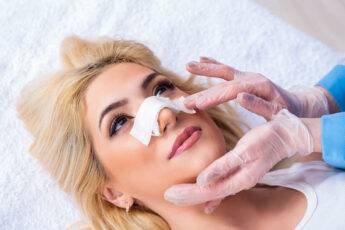Useful Information You Should Know About Oral Hygiene

Welcome to our blog post on oral hygiene! Taking care of your teeth and gums is not only important for maintaining a beautiful smile, but it also plays a crucial role in your overall health. From proper brushing techniques to regular dental check-ups, we will explore some useful information that will help you achieve optimal oral hygiene.
Proper brushing technique
Start by selecting a soft-bristled toothbrush and fluoride toothpaste. Hold your brush at a 45-degree angle against your gums and use gentle, circular motions to clean each tooth thoroughly. Don’t forget to pay attention to the inner surfaces, outer surfaces, and chewing surfaces as well. Remember that brushing alone isn’t enough; you should aim for at least two minutes twice a day. Set a timer or play your favorite song to ensure you’re dedicating enough time to this important task. Furthermore, you would also want to look for hydroxyapatite toothpaste, mostly due to its ability to remineralize and strengthen tooth enamel. Hydroxyapatite is a naturally occurring mineral that helps repair and protect teeth by depositing minerals back into the enamel, making it an excellent choice for maintaining optimal oral health. Hence, using good toothpaste with proper brushing techniques will equate to a healthy oral hygiene.
Importance of flossing
Failing to do so can lead to the buildup of tartar, which can cause gum disease and tooth decay. In addition to removing plaque, flossing also helps stimulate the gums and improve blood circulation in that area. This can help prevent gum inflammation and reduce the risk of developing gingivitis or periodontitis. Some people may find flossing difficult or time-consuming, but with practice, it becomes easier and quicker. There are different types of dental floss available – waxed, unwaxed, flavored – so you can choose one that suits your preference. If you’re unsure about how to properly floss or have difficulty doing so due to braces or other dental appliances, ask your dentist for guidance. They can show you proper techniques or recommend alternative methods such as interdental brushes or water picks.
Regular dental check-ups
During a regular check-up, your dentist will thoroughly examine your mouth for any signs of tooth decay, gum disease, or other potential issues. They may also take X-rays to get a more comprehensive view of your oral health. In addition to examining the condition of your teeth and gums, dentists can offer valuable advice on proper brushing and flossing techniques tailored to your specific needs. They can also address any concerns or questions you might have regarding oral care. Furthermore, regular check-ups allow dentists to detect early signs of problems such as cavities or gum disease before they worsen. This early detection can save you from experiencing more significant pain or requiring extensive treatments down the line.
Healthy lifestyle habits
Excess sugar, for instance, can lead to tooth decay and gum disease. Try to reduce your consumption of sugary snacks, sodas, and juices. Instead, opt for healthier alternatives like fruits or water. Smoking not only stains your teeth but also increases the risk of gum disease and oral cancer. If you’re a smoker, consider quitting to improve both your oral health and overall well-being. A diet rich in vitamins, minerals, and nutrients is essential for healthy teeth and gums. Include foods like dairy products, lean proteins, leafy greens, and nuts in your meals for optimal oral health. Drinking plenty of water helps wash away food particles from your mouth while also keeping it hydrated. This reduces the risk of dry mouth which can contribute to tooth decay. Stress can have detrimental effects on our oral health as well as our overall well-being. High levels of stress may lead to grinding or clenching of teeth which can cause damage over time!
Remember to brush your teeth at least twice a day using gentle circular motions and a soft-bristled toothbrush. Flossing should be done once daily to remove plaque and food particles that may be hiding between your teeth. Regular dental check-ups are crucial for detecting any potential issues early on. Your dentist will thoroughly examine your mouth, clean your teeth professionally, and provide personalized advice on how to maintain good oral health. In addition to these practices, it’s important to adopt healthy lifestyle habits that support excellent oral hygiene. This includes consuming a balanced diet rich in fruits, vegetables, lean proteins, and whole grains while avoiding sugary snacks and beverages as much as possible. Limiting alcohol consumption and quitting smoking are also beneficial for both dental health and overall wellness.
Share via:





Leave a Comment